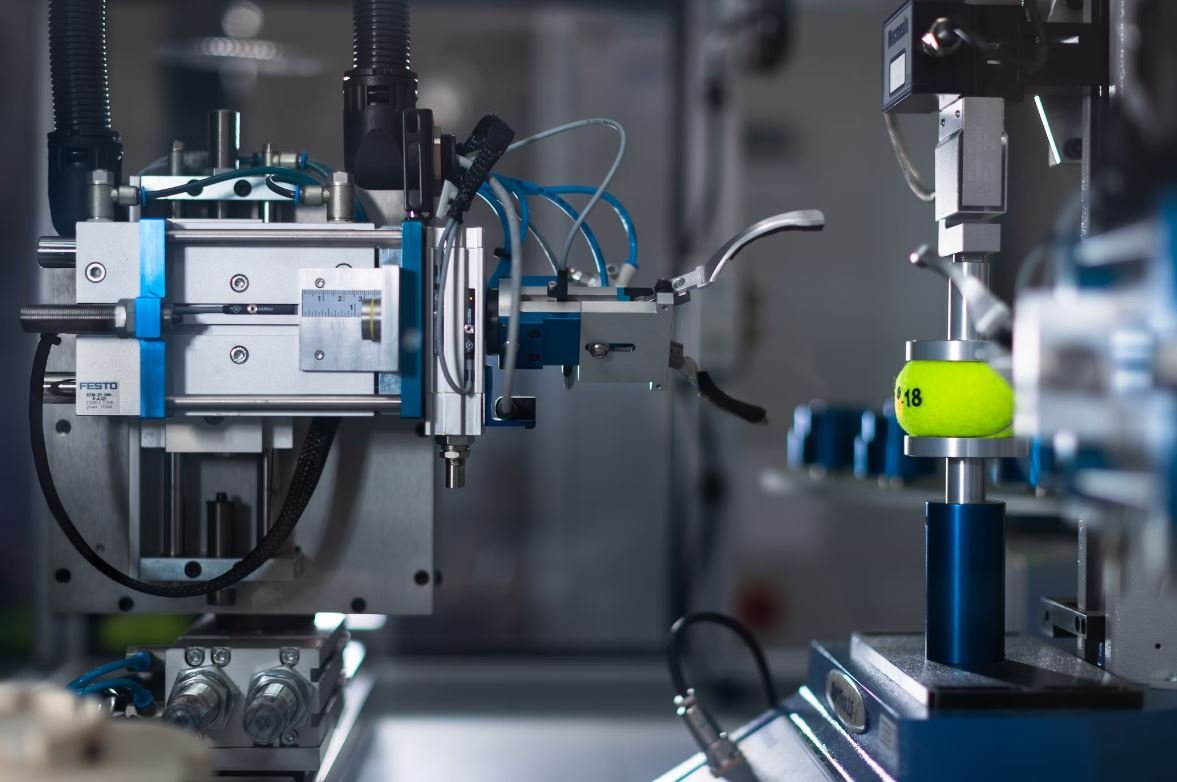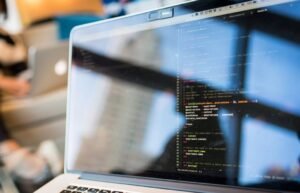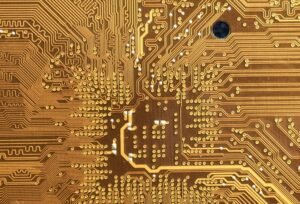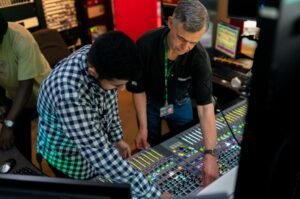Where Is AI Used Today?
Artificial Intelligence (AI) has quickly become an integral part of various industries, transforming the way we live and work. From the virtual assistants on our smartphones to self-driving cars, AI has a significant impact on our daily lives. This article explores the diverse applications of AI and highlights its role in shaping the future.
Key Takeaways
- AI is used in several industries, including healthcare, finance, manufacturing, and more.
- Applications of AI range from virtual assistants to autonomous vehicles.
- AI has the potential to improve efficiency, accuracy, and decision-making processes.
- Despite its benefits, ethical considerations surrounding AI implementation need to be addressed.
1. **Healthcare**: AI is revolutionizing healthcare by assisting in diagnosing diseases, analyzing medical images, and developing personalized treatment plans. *Machine learning algorithms can analyze vast amounts of patient data to detect patterns and predict health conditions.*
2. **Finance**: AI plays a crucial role in the finance industry, enabling fraud detection, algorithmic trading, and personalized financial advice. *Robo-advisors use AI to analyze financial data and offer tailored investment strategies to users.*
3. **Manufacturing**: AI technologies are utilized in manufacturing processes to automate production lines, monitor equipment health, and optimize supply chain management. *Smart factories leverage AI to enhance productivity and minimize downtime.*
Table 1: Applications of AI in Different Industries
| Industry | Applications |
|---|---|
| Healthcare | Disease diagnosis, medical imaging analysis, personalized treatment |
| Finance | Fraud detection, algorithmic trading, robo-advisors |
| Manufacturing | Automated production, equipment monitoring, supply chain optimization |
4. **Transportation**: AI is powering self-driving cars, optimizing traffic flow, and providing real-time navigation assistance. *Autonomous vehicles use AI algorithms to perceive their environment and make driving decisions in real-time.*
5. **Customer Service**: AI chatbots are increasingly being used to assist customers, provide instant support, and streamline customer service processes. *These chatbots use natural language processing to understand and respond to inquiries.*
Table 2: AI Applications in Different Areas of Transportation
| Technology | Applications |
|---|---|
| Self-driving cars | Autonomous driving, traffic optimization, collision prevention |
| Ride-hailing apps | Route optimization, demand prediction, fare estimation |
| Delivery services | Route planning, package tracking, automated warehouses |
6. **Education**: AI is being used to personalize learning experiences, provide personalized tutoring, and optimize educational resources. *AI-powered educational platforms adapt the learning material based on individual student needs.*
7. **Cybersecurity**: AI is crucial in detecting and preventing cyber threats, identifying anomalies, and protecting sensitive data. *Machine learning algorithms can analyze large volumes of data to identify patterns associated with cyber attacks.*
Table 3: AI Applications in Cybersecurity
| Application | Benefits |
|---|---|
| Threat detection | Early identification of potential cyber attacks |
| Malware analysis | Quick detection and classification of malicious software |
| User authentication | Enhanced security through biometric verification and behavioral analysis |
AI’s versatility and potential for innovation continue to expand as researchers and developers explore new ways to implement and enhance AI technologies. With each passing day, AI becomes more intertwined in our daily lives, offering exciting opportunities and challenges for the future.

Common Misconceptions
Misconception 1: AI is only used in advanced technology applications
One common misconception about AI is that it is only used in cutting-edge technologies such as self-driving cars or robotic surgery. However, AI is actually used in a wide range of everyday applications that we encounter on a regular basis.
- AI is used in virtual personal assistants like Siri and Alexa to understand and respond to voice commands.
- AI is used in email filters to automatically categorize and prioritize incoming emails based on their relevance.
- AI is used in online shopping platforms to provide personalized recommendations based on users’ browsing history and purchase habits.
Misconception 2: AI will replace human jobs entirely
Another misconception about AI is that it will replace human jobs entirely, leading to widespread unemployment. While AI has the potential to automate certain tasks and processes, it is unlikely to replace humans in their entirety.
- AI can automate repetitive tasks, allowing humans to focus on more complex and creative aspects of their work.
- AI can augment human capabilities, providing decision support and improving productivity in various industries.
- AI may create new job opportunities in the field of AI development, maintenance, and validation.
Misconception 3: AI is only used by large organizations
Some people believe that AI is only accessible and used by large organizations with extensive resources. However, AI technologies are becoming more affordable and accessible to businesses of all sizes.
- Smaller companies can utilize AI-powered chatbots to enhance customer service and handle customer inquiries more efficiently.
- AI tools are available for data analysis and predictive modeling, allowing businesses to make informed decisions based on insights.
- AI platforms like Google Cloud AI or Microsoft Azure AI are designed to cater to businesses of various sizes.
Misconception 4: AI is perfect and error-free
One misconception is that AI systems are infallible and completely error-free. However, AI, like any technology, is not perfect and can still encounter errors and limitations.
- AI algorithms can be biased if they are trained on biased or incomplete data, which may result in unfair outcomes.
- AI models may struggle with ambiguous or unfamiliar situations for which they haven’t been trained.
- AI systems can make mistakes or misinterpret data, requiring human intervention in certain cases.
Misconception 5: AI is a threat to humanity
There is a common misconception that AI poses an existential threat to humanity, as portrayed in popular media and science fiction. However, the current state of AI technology is far from achieving such capabilities.
- AI systems are designed to solve specific tasks and have limited general intelligence.
- AI development is guided by ethical considerations and regulations to ensure responsible and safe use.
- AI is widely used to enhance various aspects of our lives, such as healthcare, transportation, and entertainment, without posing a direct threat.

Where Is AI Used Today?
Artificial intelligence (AI) has made significant advancements in recent years, revolutionizing various industries and transforming the way we live and work. From self-driving cars to voice assistants, AI technologies have become an integral part of our daily lives. This article explores ten fascinating use cases of AI across different sectors, showcasing how this cutting-edge technology is shaping the world around us.
Enhancing Healthcare
In the healthcare sector, AI is revolutionizing diagnosis and treatment methods, improving patient outcomes. Using machine learning algorithms, AI can analyze medical records, identify patterns, and provide insights for personalized treatment plans.
| AI Use Case | Impact | Examples |
|---|---|---|
| Medical imaging | Improved accuracy in interpreting X-rays and MRIs | Google’s DeepMind Health |
| Cancer detection | Early detection and more accurate diagnosis | IBM Watson for Oncology |
| Robot-assisted surgery | Precision and efficiency in surgical procedures | Da Vinci Surgical System |
Transforming Automotive
The automotive industry has embraced AI to enhance vehicle safety, improve driving experience, and develop autonomous capabilities. AI-powered systems can analyze road conditions, detect objects, and assist in decision-making for increased transportation efficiency.
| AI Use Case | Impact | Examples |
|---|---|---|
| Autonomous vehicles | Reduced accidents and enhanced transportation systems | Tesla Autopilot |
| Smart traffic management | Improved traffic flow and reduced congestion | CityPilot |
| Driver assistance | Enhanced safety features and collision prevention | Advanced Driver Assistance Systems (ADAS) |
Revolutionizing Finance
In the financial industry, AI is utilized to analyze vast amounts of data, automate processes, and provide personalized investment recommendations. AI-powered chatbots also assist in customer support, addressing queries and resolving issues.
| AI Use Case | Impact | Examples |
|---|---|---|
| Fraud detection | Improved security and prevention of financial crimes | Kasisto chatbot |
| Algorithmic trading | Enhanced decision-making and increased trading efficiency | BlackRock’s Aladdin |
| Personalized financial advice | Tailored investment suggestions based on individual goals | Wealthfront |
Reinventing Retail
Retailers employ AI to provide personalized shopping experiences, optimize supply chains, and enhance customer engagement. From virtual personal stylists to smart inventory management, AI-powered solutions are reshaping the retail landscape.
| AI Use Case | Impact | Examples |
|---|---|---|
| Virtual personal assistants | Customized recommendations and personalized shopping | Amazon’s Alexa, Google Assistant |
| Inventory management | Efficient stock monitoring and product restocking | IBM Watson Supply Chain |
| Visual search | Improved product discovery and customer experience | Pinterest Lens |
Advancing Education
In the field of education, AI is transforming learning experiences with intelligent tutoring systems, personalized learning paths, and automated grading. AI-powered tools assist teachers in providing tailored support and feedback.
| AI Use Case | Impact | Examples |
|---|---|---|
| Intelligent tutoring | Individualized guidance and adaptive learning | Carnegie Learning |
| Automated grading | Efficient assessment and feedback generation | Gradescope |
| Personalized learning platforms | Customized learning experiences based on student abilities | Duolingo |
Optimizing Manufacturing
AI is revolutionizing manufacturing processes by optimizing efficiency, predicting maintenance needs, and ensuring product quality. Intelligent robots and machine learning algorithms collaborate to streamline production operations.
| AI Use Case | Impact | Examples |
|---|---|---|
| Predictive maintenance | Increased downtime prevention and cost savings | General Electric’s Predix |
| Quality control | Reduced defects and improved product consistency | FANUC’s Zero Downtime Quality Control System |
| Intelligent robotics | Automated production and increased productivity | KUKA Robotics |
Enhancing Cybersecurity
AI enables proactive threat detection, real-time monitoring, and response automation in cybersecurity. Machine learning algorithms analyze network behavior to identify suspicious activities and safeguard digital systems.
| AI Use Case | Impact | Examples |
|---|---|---|
| Threat detection | Early identification of potential cyber threats | Cisco’s Talos |
| Behavioral analytics | Identification of anomalous user behavior to detect breaches | Darktrace |
| Automated response | Rapid containment and mitigation of security incidents | FireEye’s Helix |
Improving Customer Service
AI-powered chatbots and virtual assistants are enhancing customer service by providing instant support, answering queries, and resolving issues. Natural language processing and machine learning enable these virtual agents to interact seamlessly with users.
| AI Use Case | Impact | Examples |
|---|---|---|
| Virtual customer service agents | 24/7 availability and personalized assistance | Pega’s Customer Service Chatbot |
| Chatbot-driven support | Efficient handling of customer inquiries and complaints | LivePerson’s Maven |
| Voice-based assistants | Hands-free interaction and instant voice-enabled support | Apple’s Siri, Amazon’s Alexa |
Transforming Agriculture
In agriculture, AI is shaping the way crops are grown, improving yield prediction, and enabling precision farming techniques. Computer vision and data analytics assist farmers in making informed decisions to maximize productivity.
| AI Use Case | Impact | Examples |
|---|---|---|
| Automated harvesting | Increased efficiency and reduced labor costs | Abundant Robotics |
| Crop monitoring | Real-time assessment of plant health and nutritional needs | John Deere’s See & Spray |
| Smart irrigation | Optimized water usage for sustainable agriculture | WINT Water Intelligence |
Conclusion
AI has been integrated into numerous industries, ushering in a new era of innovation and efficiency. From healthcare to manufacturing, retail to agriculture, the tremendous potential of AI is being realized across various sectors. With ongoing advancements and continued exploration, AI is set to reshape our world, driving progress and transforming the way we live, work, and interact.
Frequently Asked Questions
Where Is AI Used Today?
How is AI used in healthcare?
AI is used in healthcare for a variety of purposes, including medical image analysis, diagnosis and treatment recommendations, drug discovery, patient monitoring, and administrative tasks. It helps improve patient outcomes, enhance efficiency, and enable personalized medicine.
In which industries is AI applied?
AI is used across various industries such as finance, retail, manufacturing, transportation, customer service, and cybersecurity. It is employed to streamline processes, automate tasks, enable predictive analytics, and enhance decision-making.
Can AI be used in agriculture?
Yes, AI is utilized in agriculture for crop monitoring, yield prediction, pest detection, soil analysis, and smart irrigation systems. It aids farmers in making data-driven decisions, optimizing resource allocation, and increasing agricultural productivity.
How does AI contribute to the automotive industry?
AI plays a significant role in the automotive industry by enabling autonomous driving, advanced driver assistance systems (ADAS), predictive maintenance, vehicle and traffic management, and voice recognition. It enhances safety, efficiency, and overall driving experience.
Is AI used in the financial sector?
Yes, AI is extensively used in the financial sector for fraud detection, algorithmic trading, credit scoring, risk assessment, customer service chatbots, and personalized financial recommendations. It improves efficiency, reduces costs, and enhances the customer experience.
Can AI be applied to the education field?
AI is increasingly being applied in the education field for adaptive learning, intelligent tutoring systems, plagiarism detection, automated grading, and personalized learning experiences. It helps customize education, identify student needs, and evaluate performance.
What is the role of AI in the retail industry?
AI plays a crucial role in the retail industry through applications like demand forecasting, inventory management, personalized recommendations, chatbots for customer support, and cashierless stores. It enhances customer engagement, improves operations, and increases sales.
How is AI utilized in the entertainment sector?
AI is utilized in the entertainment sector for content recommendation systems, personalized advertisements, music and video creation, virtual reality experiences, and audience sentiment analysis. It improves content discovery, user engagement, and production efficiency.
In what ways is AI used in cybersecurity?
AI is used in cybersecurity to detect and prevent threats, analyze patterns, identify anomalies, and automate incident response. It aids in protecting sensitive data, identifying vulnerabilities, and staying ahead of rapidly evolving cyber threats.
How does AI contribute to the field of scientific research?
AI contributes to scientific research by aiding in data analysis, predicting outcomes, simulating complex systems, drug discovery, and identifying patterns in large datasets. It accelerates scientific discoveries, enables faster experimentation, and helps uncover new insights.




